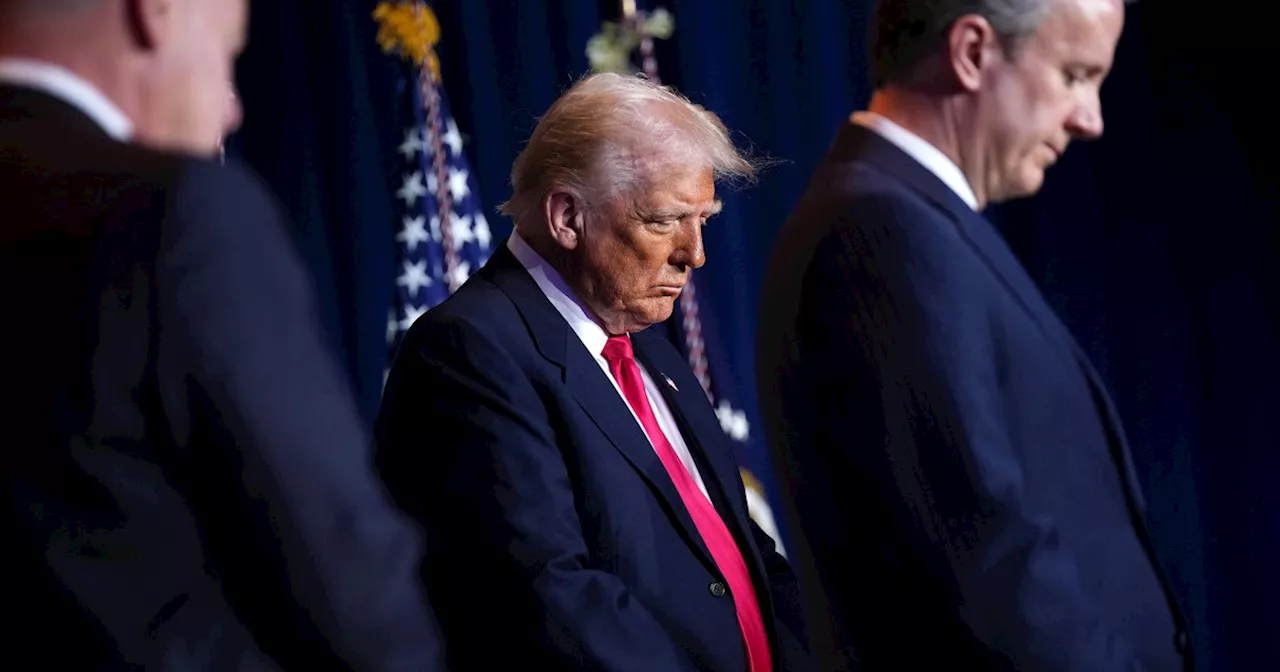While President Trump enjoys strong support from the evangelical community, some leaders are raising concerns about his immigration policies, particularly the potential for churches to be targeted in raids. They argue that these policies could jeopardize missionary work abroad and curtail the religious freedom of their congregations.
President Donald Trump called for unity in his speech at the National Prayer Breakfast on Thursday morning, largely steering clear of addressing controversies surrounding his actions cracking down on immigration and paralyzing federal efforts to distribute international aid. But some evangelical leaders are speaking out against both policies, even though Trump has enjoyed broad support from the evangelical community. The Rev.
Gabriel Salguero, who is the president of the National Latino Evangelical Coalition, was among the faith leaders at the breakfast. He had been meeting with senators and government leaders since Wednesday, he told NBC News, explaining to them how the pause on international aid and the gutting of the U.S. Agency for International Development, which distributes those funds, jeopardize their missionary work abroad. “We know the collective impact this has on saving lives and on vulnerable children and families,” said Salguero, who has done missionary work in Malawi, Tanzania, Zambia and Guatemala. Salguero has also seen how international aid plays a role in preventing migration to the United States. “If we’re concerned with immigration, shouldn’t we also be concerned about how foreign aid helps people stay in their country and flourish?” he said. “These things are not disconnected,” said Salguero, who stressed he is a registered independent and does not endorse candidates. Salguero, a pastor at The Gathering Place, a Latino-led multiethnic church in Orlando, Florida, said teachers who go to his church have told him about the fear and anxiety they’re seeing among students from families with mixed immigration status since Trump signed a flurry of immigration-related executive orders on ending birthright citizenship and rescinding policies that limited immigration enforcement actions in sensitive places like schools, churches and hospitals. Since he took office two weeks ago, Trump has also ended a number of immigration processes meant to help migrants seek asylum in the United States legally, such as the CBP One app, refugee programs and Temporary Protected Status. Salguero said that those immigration actions send “an inconsistent message” and that pastors like him “are trying to seek clarity.” “We need to deal with criminals and violent criminals in ways that keep our community safe. We support that,” he said. “On the other hand, they’re passing memos and executive orders that are way beyond that scope.” He also said that “if it’s true that the administration is worried about violent criminals, why did they pardon over a thousand people who acted violently in the Capitol? ... Why then try to rescind the 14th Amendment, depriving children of birthright citizenship? They’re not violent criminals; they haven’t been born. They have a right to be citizens.” Walter Kim, president of the National Association of Evangelicals, was a pastor in multiethnic and Korean immigrant churches for nearly 30 years before he joined the association full time. In that role, he said, he has seen how congregations at those churches worry about “an overreaction” from immigration enforcement agents, potentially disturbing their places of worship “in the pursuit of undocumented criminal influence” and undermining the sanctity of their churches. “Should churches be law-abiding? Absolutely. Should they be cooperating with agencies to ensure that criminal influences are dealt with? Absolutely,” Kim said. “But by and large, those communities that are experiencing fear and not going to church is far beyond the very small portion of the immigrant, undocumented criminal segment.” Kim and Salguero said they believe the policy changes making churches vulnerable to immigration raids should be reconsidered because they’re curtailing the religious freedom of their congregations. Ongoing support for Trump Self-identified evangelical Protestants are about a quarter of the U.S. population. And as a voting bloc, they were crucial in electing Trump in November, according to a postelection survey from the Public Religion Research Institute. With people of color making up nearly 1 in 3 evangelicals, strong support for Trump among Latino evangelicals helped him make inroads with the overall Hispanic electorate. Fifteen percent of U.S. Latinos identify as evangelical Protestants. The Rev. Samuel Rodríguez remains supportive of Trump and his actions. Rodríguez, a pastor at the New Season megachurch in California and the president of the National Hispanic Christian Leadership Conference, participated in a convening of evangelical leaders last week to affirm Trump’s immigration agenda. Speaking with NBC News from Israel on Thursday, Rodríguez said he’s still not worried about churches’ being targeted for immigration raids based on frequent conversations his organization has with the Trump administration
Trump Immigration Evangelical Churches Religious Freedom International Aid
United States Latest News, United States Headlines
Similar News:You can also read news stories similar to this one that we have collected from other news sources.
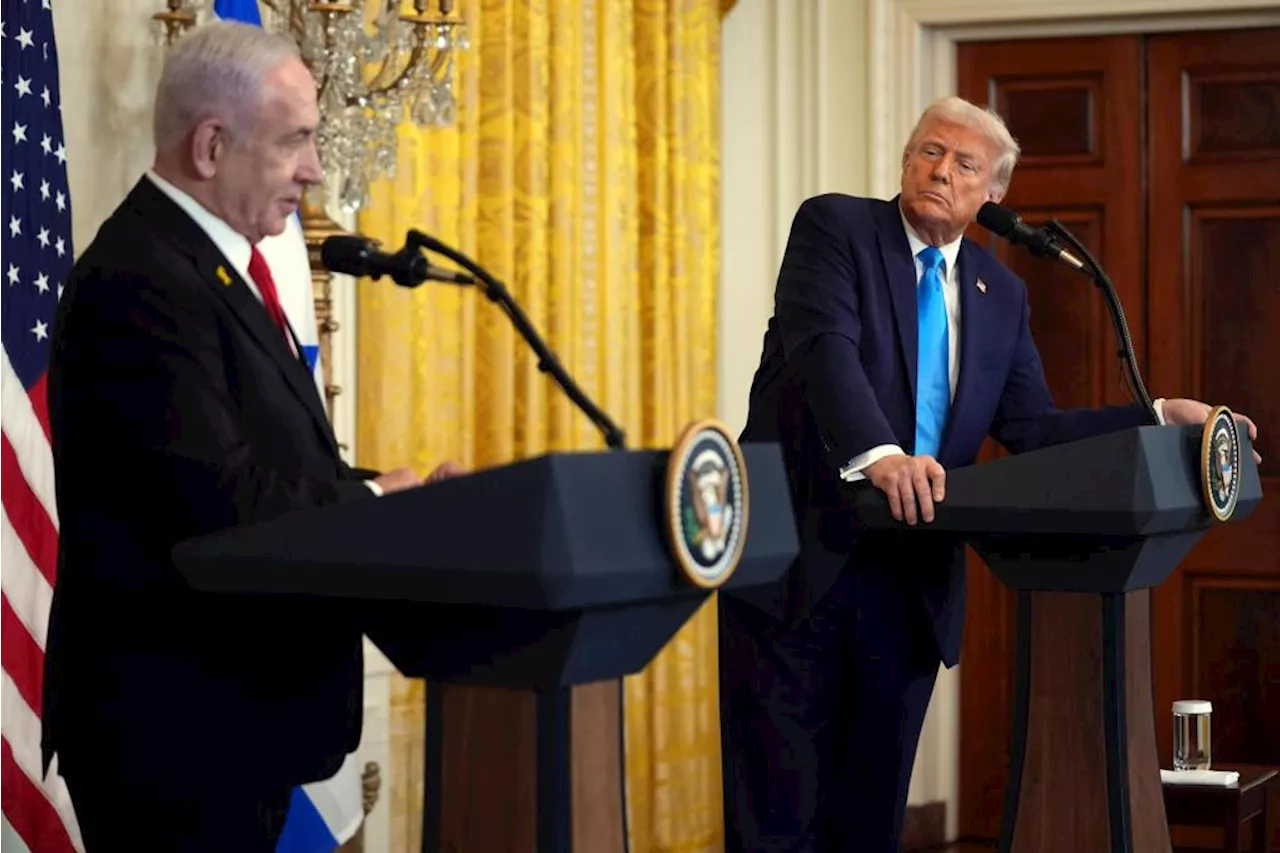 Evangelical Christian Leaders Meet with Netanyahu Before Trump VisitIsraeli Prime Minister Benjamin Netanyahu met with a group of evangelical Christian leaders in Washington, D.C., before his meeting with President Donald Trump. This meeting highlights the strong support evangelical Christians provide to Israel and their influence in U.S. foreign policy.
Evangelical Christian Leaders Meet with Netanyahu Before Trump VisitIsraeli Prime Minister Benjamin Netanyahu met with a group of evangelical Christian leaders in Washington, D.C., before his meeting with President Donald Trump. This meeting highlights the strong support evangelical Christians provide to Israel and their influence in U.S. foreign policy.
Read more »
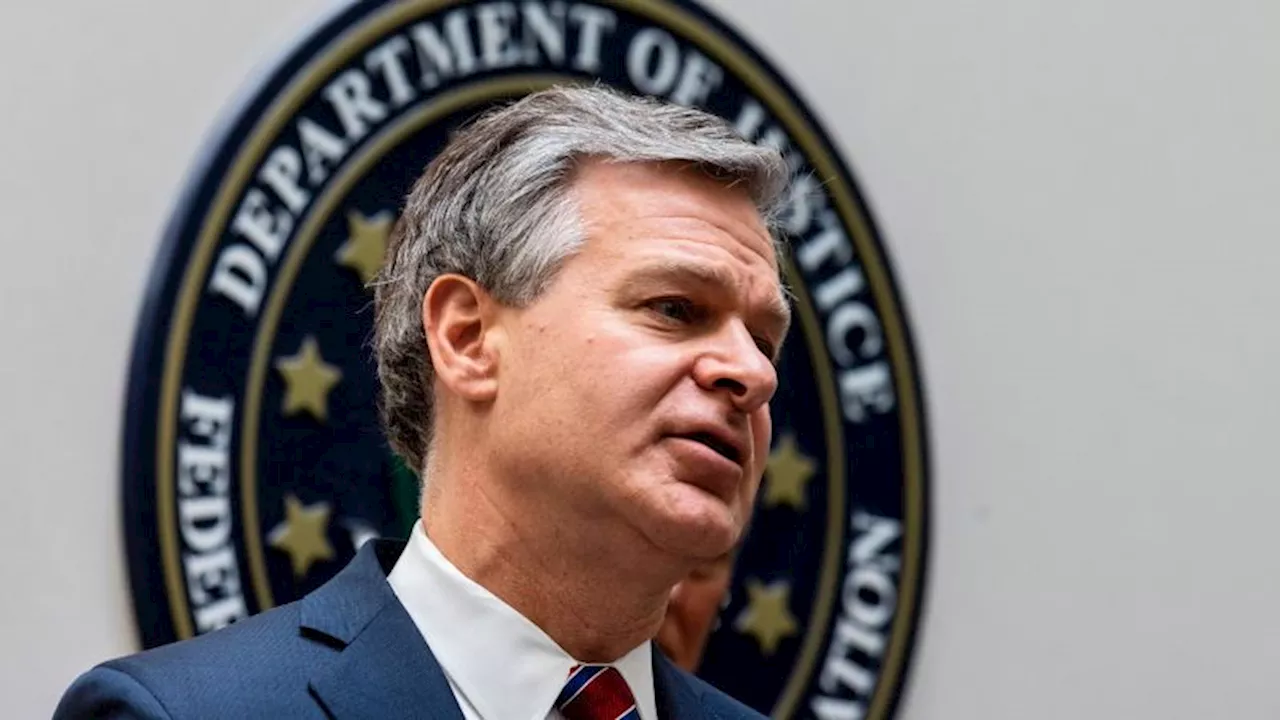 FBI Purge Extends: Senior Leaders Demoted Amid Trump’s Retaliatory PushThe purge at the FBI continues, with at least five senior leaders being demoted or reassigned. This follows a wave of similar actions at the Justice Department last week. Sources say these demotions target individuals overseeing cyber, national security, and criminal investigations, raising concerns within the agency. This comes as hundreds of agents involved in investigations into the January 6th Capitol attack and Trump’s handling of classified documents face potential punishment. The move reflects President Trump’s vow to retaliate against what he perceives as FBI ‘weaponization.’
FBI Purge Extends: Senior Leaders Demoted Amid Trump’s Retaliatory PushThe purge at the FBI continues, with at least five senior leaders being demoted or reassigned. This follows a wave of similar actions at the Justice Department last week. Sources say these demotions target individuals overseeing cyber, national security, and criminal investigations, raising concerns within the agency. This comes as hundreds of agents involved in investigations into the January 6th Capitol attack and Trump’s handling of classified documents face potential punishment. The move reflects President Trump’s vow to retaliate against what he perceives as FBI ‘weaponization.’
Read more »
 Industry Leaders Push Back Against Trump's Tariffs on Canada, Mexico, and ChinaThe Trump administration's implementation of tariffs on goods from Canada, Mexico, and China has sparked widespread concern and criticism from industry leaders across various sectors. Many argue that these tariffs will ultimately harm American consumers and businesses, while doing little to address the underlying issues.
Industry Leaders Push Back Against Trump's Tariffs on Canada, Mexico, and ChinaThe Trump administration's implementation of tariffs on goods from Canada, Mexico, and China has sparked widespread concern and criticism from industry leaders across various sectors. Many argue that these tariffs will ultimately harm American consumers and businesses, while doing little to address the underlying issues.
Read more »
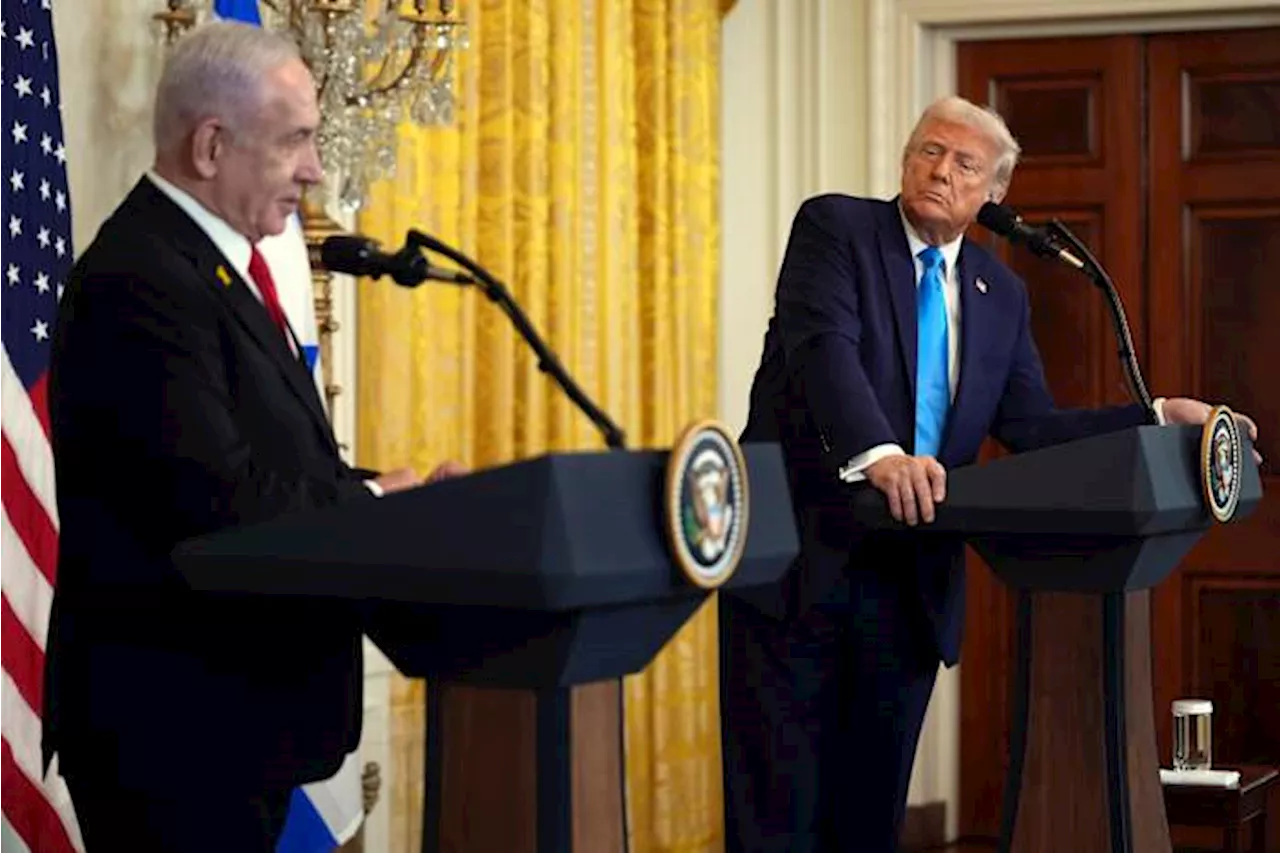 San Antonio to Implement Baby Box Program and Netanyahu's Meeting with Evangelical LeadersThis article covers two distinct news stories: San Antonio's plan to launch a baby box program to provide safe havens for infants, and Israeli Prime Minister Benjamin Netanyahu's meeting with evangelical Christian leaders in Washington, D.C. The article explores the motivations behind both events and their potential implications.
San Antonio to Implement Baby Box Program and Netanyahu's Meeting with Evangelical LeadersThis article covers two distinct news stories: San Antonio's plan to launch a baby box program to provide safe havens for infants, and Israeli Prime Minister Benjamin Netanyahu's meeting with evangelical Christian leaders in Washington, D.C. The article explores the motivations behind both events and their potential implications.
Read more »
 Indiana Women Push No. 4 USC But Can’t Push The Trojans OverHoosiers lose lead in fourth quarter and late rally falls short in 73-66 loss to No. 4 USC.
Indiana Women Push No. 4 USC But Can’t Push The Trojans OverHoosiers lose lead in fourth quarter and late rally falls short in 73-66 loss to No. 4 USC.
Read more »
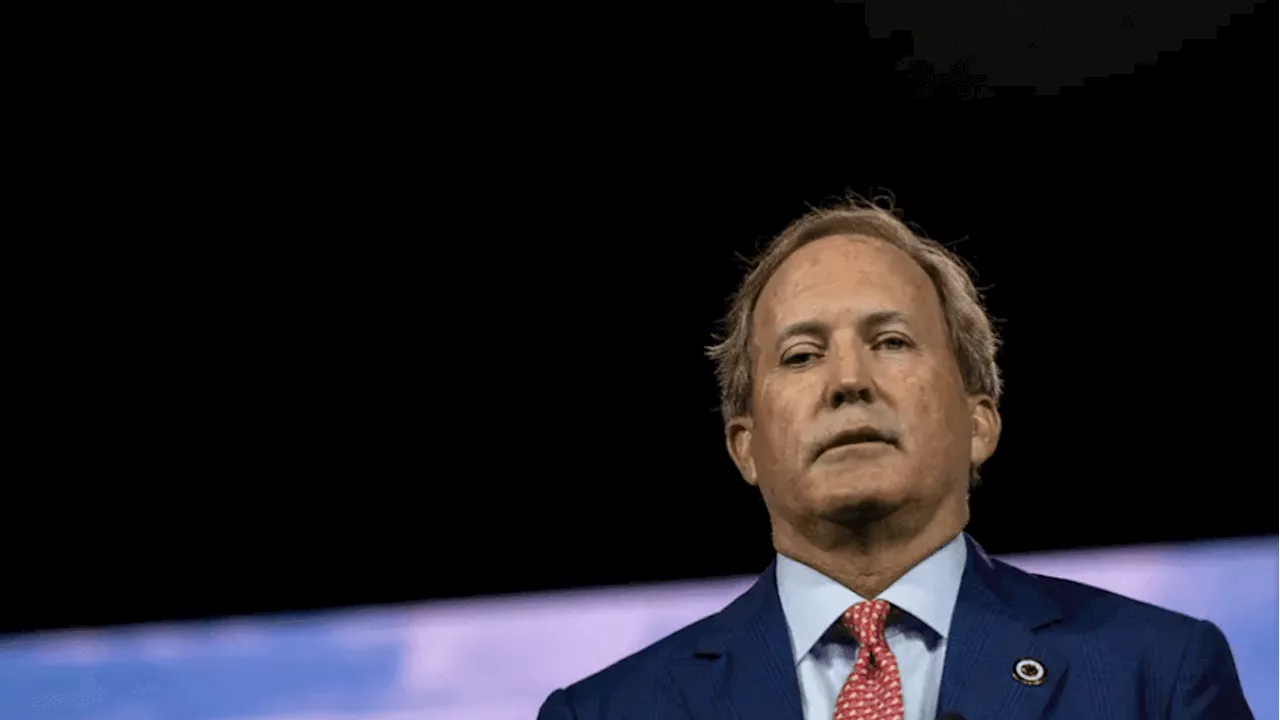 Texas GOP Leaders Push for Unanimous Republican Speaker ChoiceRepublican leaders in Texas, including Attorney General Ken Paxton and Lieutenant Governor Dan Patrick, are urging House lawmakers to support a Speaker chosen unanimously by the Republican caucus. This pressure stems from Representative Dustin Burrows' bid for Speaker, who claims the backing of both Republicans and Democrats. Paxton even hinted at endorsing primary challengers to House Republicans supporting Burrows over the caucus' pick, David Cook.
Texas GOP Leaders Push for Unanimous Republican Speaker ChoiceRepublican leaders in Texas, including Attorney General Ken Paxton and Lieutenant Governor Dan Patrick, are urging House lawmakers to support a Speaker chosen unanimously by the Republican caucus. This pressure stems from Representative Dustin Burrows' bid for Speaker, who claims the backing of both Republicans and Democrats. Paxton even hinted at endorsing primary challengers to House Republicans supporting Burrows over the caucus' pick, David Cook.
Read more »
